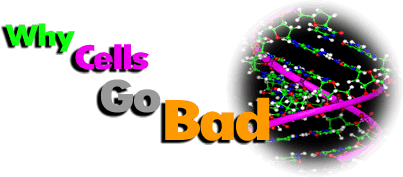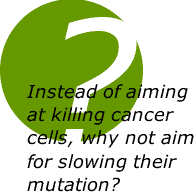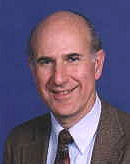
Part Three: Loeb's Crusade Against Smoking
Studying mutation has thrust Loeb and his colleagues into the spotlight of a technological explosion. He hopes it will be possible within a few years not just to count the mutations on a particular spot of a chromosome, but to count the random mutations on the entire length of the genome—six billion nucleotides.
Where he sits, in the spotlight, requires a frenzy of communication with fellow scientists. Loeb is the president-elect of the Environmental Mutagen Society, a national organization at the forefront of cancer research. He is the past president of the American Association for Cancer Research, and was once the associate editor of its journal.

While his research is intense, Loeb never loses sight of the human side of cancer patients, which is why he devotes so much time to the medical-scientist program at the UW School of Medicine.
He is director of this program, which allows students to become medical doctors and get a research Ph.D. at the same time, uniting the worlds of ordinary patients and laboratories. The UW has the largest such program in the country, with 80 students. All of them, at least once, get invited to Loeb's home in Bellevue for dinner.
In his laboratory, he is a coach. For the doctor-scientist students, he is the gatekeeper. He describes himself as helping brilliant people to find the right place (and people) with which to continue their work. "I don't teach them anything," he says. "I just help them meet the right people."
Unlike some laboratory scientists, he has also spent his life trying to move public opinion and save lives through education.
His moral outrage, and his willingness to be a public target, drove him to take a very public position in the midst of a controversy in 1984, when he pushed his committee at the American Association of Cancer Research to publish a position paper on smoking and lung cancer that emphasized reducing smoking in society. The tobacco industry was irate over researchers getting involved in public health policy, but Loeb stood firm. Because of the article's publication, several medical organizations stopped accepting any research grants from the tobacco industry.

Gilbert Omenn, executive vice president for medical affairs at University of Michigan, formerly UW's Dean of Public Health. Photo courtesy U-Mich.
Former UW Public Health and Community Medicine Dean Gilbert Omenn, now at the University of Michigan, praises Loeb's courage and describes him as "an international leader in advocacy to reduce tobacco use."
Loeb traces the birth of his activism to that paper's publication. He is still crusading. On a long airplane flight to Japan, he noticed that while smoking was not allowed during the flight, the airline gave away free cigarettes to passengers. In his outrage, he wrote a letter to the airline that succeeded in ending the practice.
There is another link between smoking and Loeb's research. It was lung cancer that killed Puget Sound patriarch Joseph Gottstein, whose family continues to endow Loeb's laboratory.
Somewhere in the six billion molecules that form the alphabet of human DNA, Loeb hopes to find out exactly how cancer begins. Some people might be daunted by the staggering number of mutations that must be individually explored. Each one must be probed to discover where cancer begins.
"I don't think of them as questions," he answers, honestly. "Every one of them is something I can find out."
Sally James writes about medicine for both Internet and print publications as a freelance writer in Seattle. She previously worked as a newspaper reporter for several Northwest dailies.
Go To: Page 1 | Page 2 | Page 3